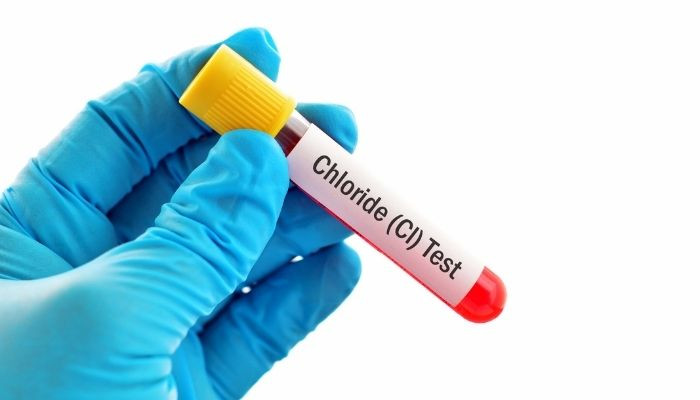Definition
Calcium is an essential mineral component of the body, with approximately 1% of the calcium found in the blood and the rest stored in the bones and teeth. Calcium plays a crucial role in strengthening bones and teeth, as well as supporting proper muscle and nerve function. Typically, the kidneys filter calcium in the blood, which is then excreted through urine.
The serum calcium test is conducted using a blood sample to assess the total calcium levels in the body. Ionized calcium, or free calcium, refers to the active form of calcium that is not bound to other substances. Testing for ionized calcium provides more detailed information about active calcium levels, which is important for evaluating conditions that affect abnormal protein levels, such as albumin or immunoglobulin levels in the blood.
When there is an imbalance between bound calcium and free calcium, it becomes necessary to identify the underlying cause of the condition. Generally, free calcium and bound calcium together make up about half of the total calcium in the body.
Indication
This test may be indicated if:
-
You are receiving a blood transfusion.
-
You have had major surgery in the past.
-
You have abnormal protein levels in your blood.
In some cases, it is important to determine the amount of free calcium in the body. Your doctor may suggest this test if you experience symptoms such as:
-
Numbness around the mouth, feet, and hands.
-
Muscle spasms in these same areas.
Contraindication
There are no specific contraindications for ionized calcium test. However, it is important to ensure that you are calm and not stressed during the procedure, as stress can influence the results.
Preparation Before the Test
Certain medications can affect the results of the blood test. It is important to:
-
Consult your doctor about any medical conditions and medications you are currently taking.
-
Do not stop or change your regular medications without first consulting your doctor.
Test Procedure
The ionized calcium test is conducted using a blood sample. The laboratory staff will first clean the area on your arm with an alcohol swab before drawing a small amount of blood from a vein in your arm using a sterile syringe. In infants, blood is typically drawn from the heel.
After the blood is collected, it will be placed into a blood tube and analyzed by laboratory staff using specialized equipment.
The risk associated with this blood test is minimal. Some individuals may experience mild discomfort, dizziness, or bruising at the site where blood was drawn. However, these symptoms usually subside quickly. The entire procedure is straightforward and typically takes up to 10 minutes to complete, including blood collection and preparation. It is generally a painless and efficient process.
Normal and Abnormal Values
The normal range for calcium ion levels differs between adults and children:
-
Adults: Normal values range from 4.8 to 5.6 mg/dL.
-
Children: Normal values range from 4.8 to 5.3 mg/dL.
Test results are considered abnormal if they fall outside the normal range, either below the lower limit or above the upper limit.
Results and Recommendations (Follow-up Tests)
Normal Levels
If the test results fall within the normal range, it indicates that the body’s calcium ion needs are being met. However, test results may vary slightly depending on the laboratory, as different labs may use different methods and equipment.
It is important to inform your doctor about the test results. To maintain health, continue following a balanced diet, engage in regular physical activity, and undergo routine health checks.
Abnormal Levels
If the ionized calcium test results are low, this could indicate:
-
Hypoparathyroidism (underactive parathyroid glands)
-
Calcium malabsorption
-
Osteomalacia or rickets (softening of the bones)
-
Pancreatitis (inflammation of the pancreas)
-
Kidney failure
-
Vitamin D deficiency
If the ionized calcium test results are high, this could suggest:
-
Hyperparathyroidism (overactive parathyroid glands)
-
Hyperthyroidism (overactive thyroid)
-
Hypocalciuria (low calcium levels in urine)
-
Multiple myeloma (a type of cancer affecting plasma cells)
-
Thrombocytosis (high platelet count)
-
Sarcoidosis (growth of inflammatory cells in various organs)
-
Paget’s disease (bone disease causing abnormal bone growth)
-
Vitamin A deficiency
-
Vitamin D deficiency
Consult the Right Doctor
If your ionized calcium test results are abnormal, consult a general practitioner to receive the appropriate diagnosis and treatment. If needed, the general practitioner will refer you to specialists, such as an internal medicine expert or a nutritionist, especially if your diet might be contributing to abnormal calcium ion levels.
Looking for more information about laboratory, radiology, and other examination results? Click here!
- dr. Monica Salim
Calcium - Ionized. (2021). Retrieved 08 May 2023, from https://medlineplus.gov/ency/article/003486.htm
Calcium Test. (2022). Retrieved 08 May 2023, from https://www.testing.com/tests/calcium/
Calcium, Ionized. (2019). Retrieved 08 May 2023, from https://emedicine.medscape.com/article/2087469-overview











